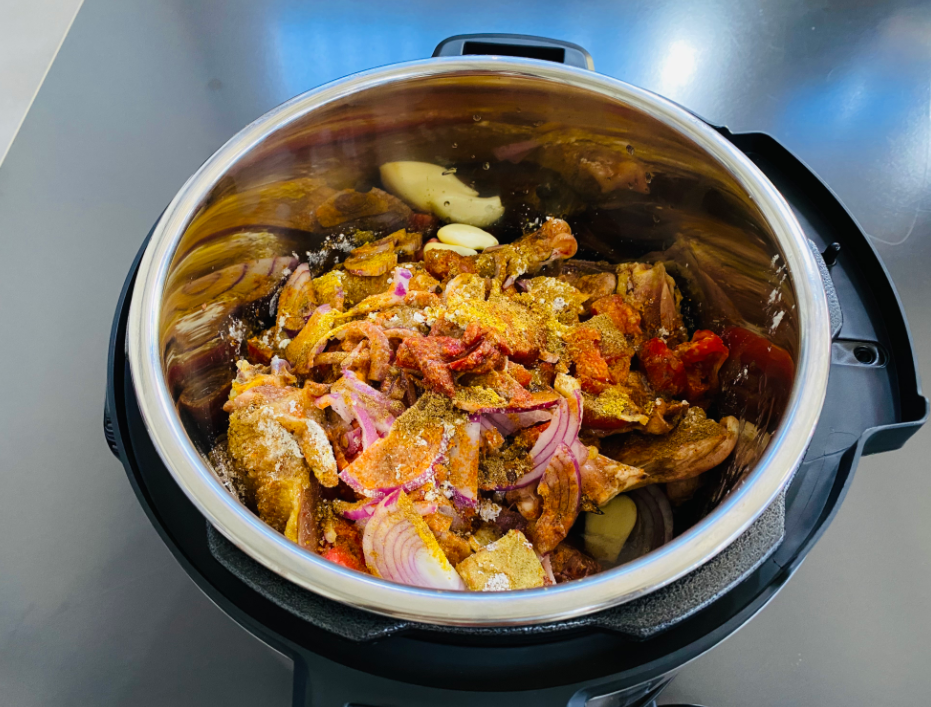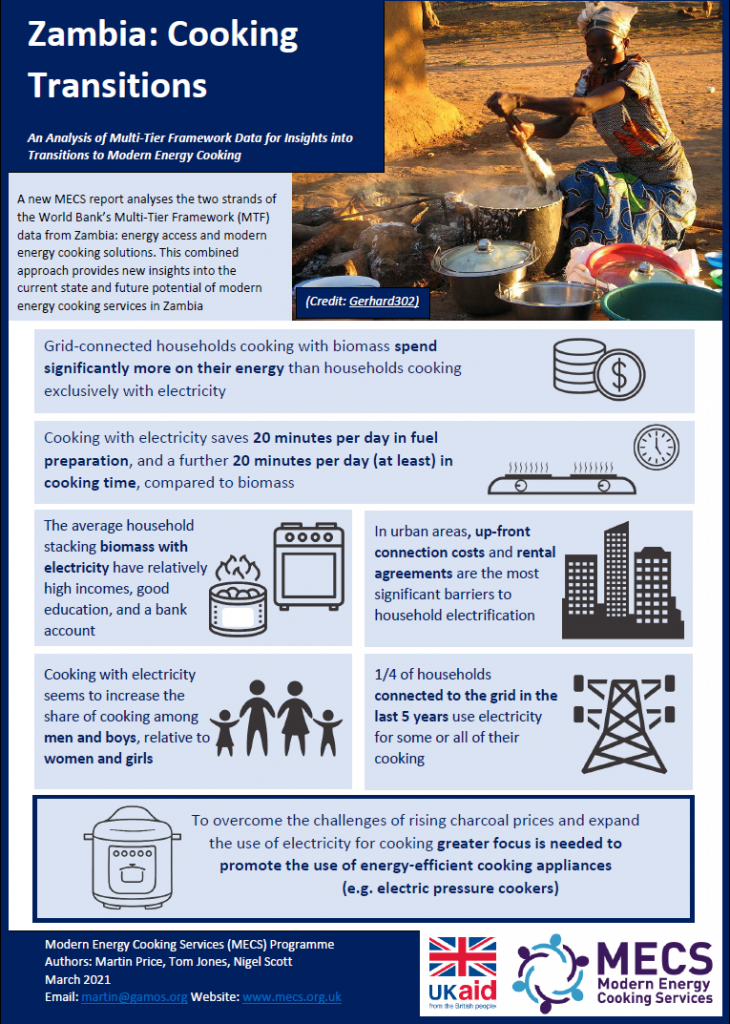
- Date
- 18th March 2021
- Categories
By Dr. Martin Price (Gamos Ltd.)
Today marks the publication of our third working paper in a series based on the ‘Beyond Connections’ reports, which are produced by the World Bank’s Energy Sector Management Assistance Programme (ESMAP).
In “Zambia – Beyond Connections” (Luzi et al, 2019), the authors present a diagnostic of the multi-tier framework data from Zambia. The multi-tier framework is an approach to understanding the nuances of energy use both for electricity and clean cooking, and thus provides a level of detail rarely captured by existing national data sets. The report was among the first in a series of country-specific reports to be published, and intended to set a new standard in data collection and to present the findings in a useful format for policy actors. Their report summarises access to both electricity and clean cooking in Zambia, whilst also providing an analysis of the gender dynamics at play across varying levels of energy access.
In the working paper published today, we consider whether the multi-tier framework data could provide additional insights into ‘transitions to modern energy’, where access to electricity and clean cooking form part of an integrated policy agenda. Our interest lies in the use of electricity for cooking, and here we explore the data for linkages between groups of households across the electricity/clean cooking divide.
The report begins by exploring the current state of electricity access and modern energy cooking fuels in Zambia. An integrated analysis of these trends at the household level then follows, taking account the financial cost, time burden, and quality and reliability issues associated with household cooking. Gender dynamics are integrated throughout the report, and particularly in relation to women’s prominent role in both cooking and purchasing decisions.

The paper demonstrates the importance of nuanced data collection and analysis when attempting to understand the opportunities and challenges of transitioning to modern energy cooking. We show that electricity is a popular cooking fuel in Zambia, and argue that energy-efficient appliances are the answer to rising charcoal prices and the misplaced perception that modern energy sources are expensive for cooking.
The first two reports in the series, focusing on the cooking transition in Ethiopia and Cambodia, are available via these links. Additional reports focusing on Nepal, Rwanda, Kenya and Myanmar will be published in the coming months.